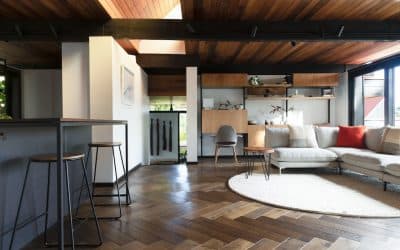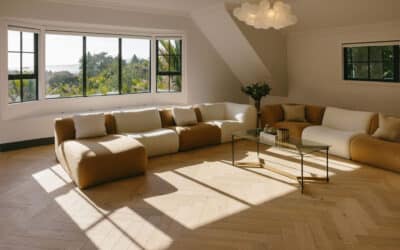Timber flooring, with its natural beauty and durability, is a popular choice for many homes and businesses. However, it’s not immune to scratches and dents, which can mar its appearance. Understanding how to effectively deal with these imperfections is crucial for maintaining the aesthetic and longevity of the flooring.
Understanding the Type of Timber Flooring
Before addressing the repairs, it’s essential to identify the type of timber flooring you have, as the repair process can vary significantly. The two main types are oiled and lacquered floors.
- Oiled Floors: These floors have an oil finish that penetrates the wood, offering a natural look. They’re easier to repair at a small scale because the oil can be reapplied locally.
- Lacquered Floors: These have a protective coating that sits on top of the wood, creating a glossy and hard finish. While they’re more resistant to damage, repairs often require refinishing a larger area to blend in seamlessly.
Dealing with Scratches
For superficial scratches, a simple DIY solution can often be effective. You can use a wood marker or wax crayon that matches the floor’s color to fill in the scratches.
For small scratches in oiled floors, treating scratches can be as simples as applying a small amount of maintenance oil with a clean cloth, then buffing until dry.
For deeper scratches, especially in oiled floors, sanding the affected area and reapplying oil may be necessary.
Lacquered floors with deep scratches might require the damaged plank to be sanded down and then refinished with lacquer. It’s crucial to ensure the new lacquer matches the rest of the floor.
Fixing Dents
Dents are trickier as they represent actual damage to the wood. For minor dents in oiled floors, steaming the area can raise the grain, but this should be done by a professional, as steaming a timber floor can damage the protective finish.
In lacquered floors, larger dents usually necessitate the replacement of the affected plank. This process can be complex and might require professional help, especially to ensure the new plank matches the existing floor in terms of colour and finish.
Smaller dents can be treated with wax repair.
Professional Help and Maintenance
For significant damage, seeking professional help is advisable. Professionals can assess the extent of the damage and suggest the best course of action, whether it’s repair or replacement.
Regular maintenance can prevent scratches and dents. Use furniture pads, regularly sweep or vacuum the floor, and immediately clean up spills. Placing rugs in high-traffic areas can also be beneficial. If the floor has an oil finish, then regular maintenance can ensure longevity.
Online Resources
For more detailed guidance, you can refer to the following online resources:
Maintaining timber flooring requires knowledge of the type of flooring and appropriate repair techniques. Regular maintenance, coupled with timely repairs, can ensure the longevity and beauty of your timber floors. For extensive damage, professional services are recommended.


